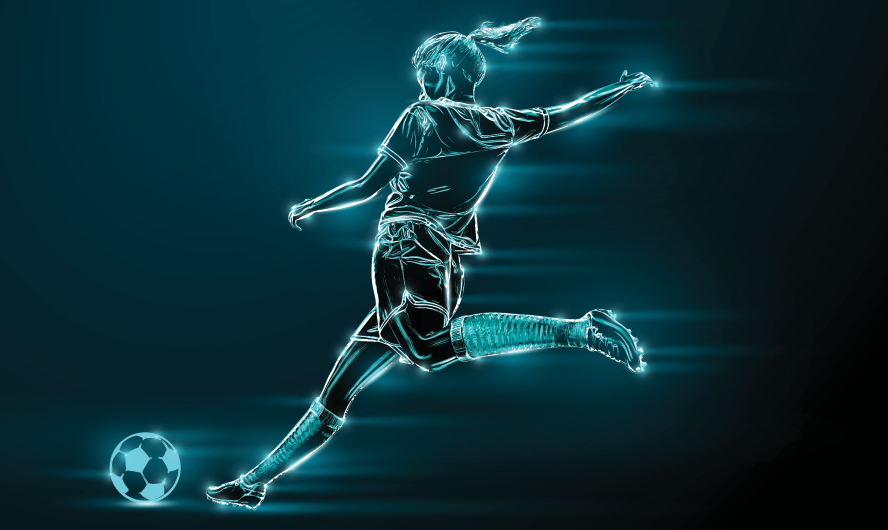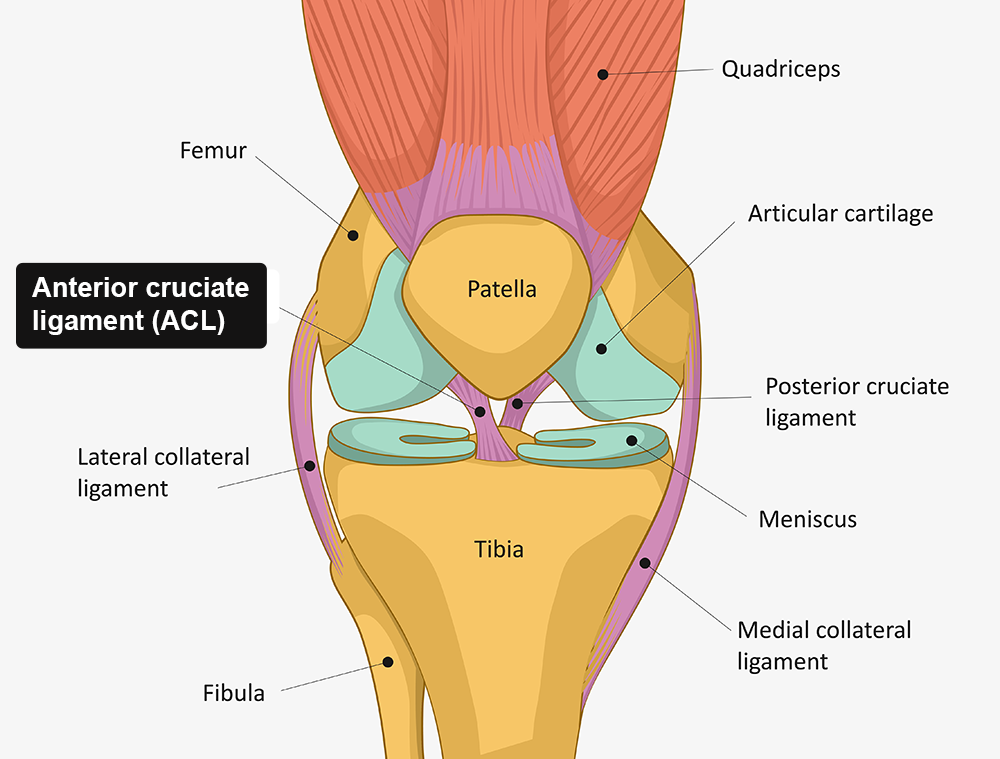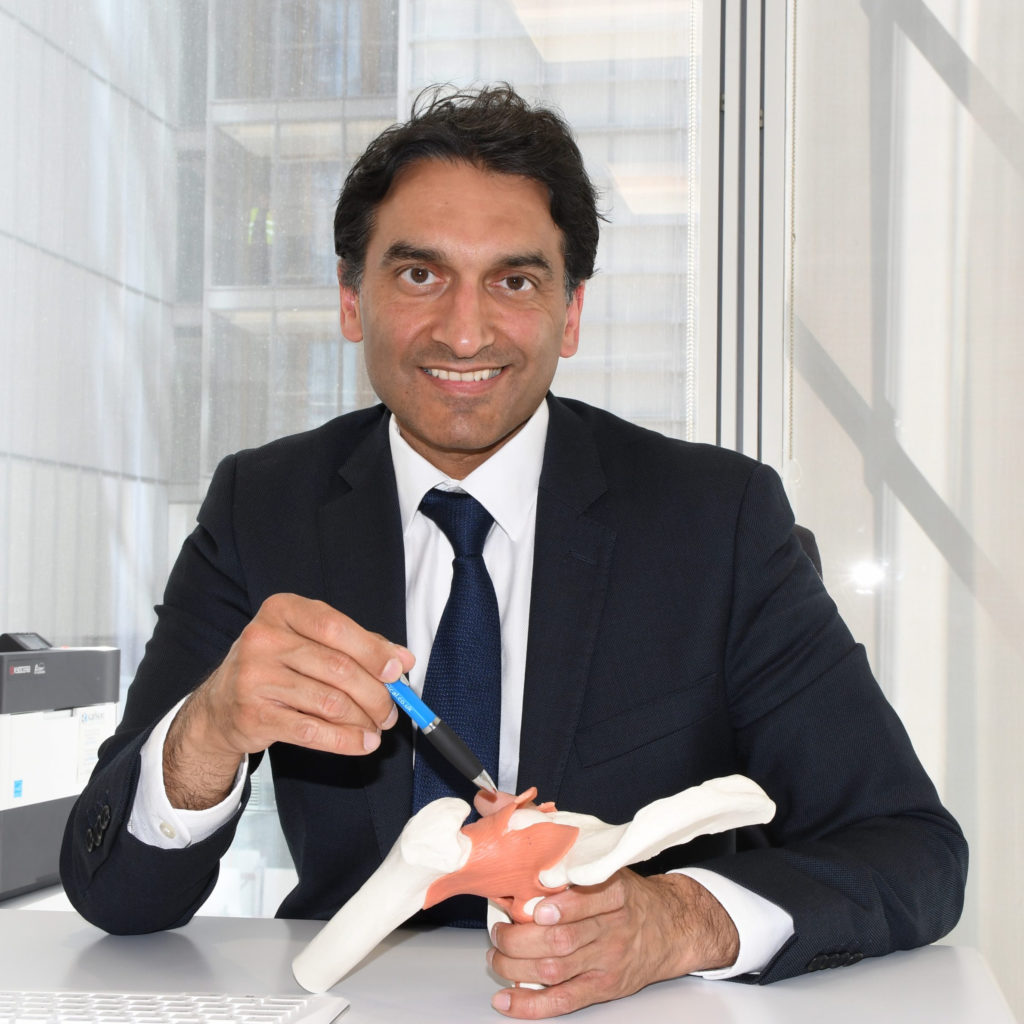ORTHOPAEDIC OPINIONS BLOG
Football and Anterior Cruciate Ligament (ACL) Injuries: What you Need to Know
February 2023

Both the Women’s Super League (WSL) and the Premier League are seeing a high proportion of players sustaining injuries. Amongst these are Anterior Cruciate Ligament (ACL) sprains and tears. The higher incidence of these injuries affecting the women’s teams suggests an increased prevalence in women. Mr Vipin Asopa, Consultant Orthopaedic Surgeon specialising in sports injuries, gives us some key facts regarding ACL injuries.
Women in football are more likely to get an ACL injury than men
In a recent Sky Sports article [1] discussing ACL injuries in the Women’s Super League, it was estimated that female footballers are up to six times more likely to sustain an ACL injury than male football players. There are various theories to explain the increased incidence in women, however there is currently limited evidence to support them.
ACL injuries are common in football because of the sudden stops and pivoting movements
Skiing, tennis and football are all sports that have a risk of ACL injury due to the sudden stopping and pivoting movements. This typically occurs when a player is running at full speed for the ball and then the ball is kicked in another direction, a player will stop and turn very quickly, and that movement carries a risk of ACL injury. Movements which can cause an ACL injury are given in the table below:
| Changing direction rapidly |
| Stopping suddenly |
| Slowing down while running |
| Landing from a jump incorrectly |
| Direct contact or collision, such as a football tackle |
It is not surprising that ACL injuries are so common in football because all of these movements frequently occur repeatedly throughout the match.

The ACL provides stability to the knee
The main function of the anterior cruciate ligament is to keep your knee stable.
The cruciate ligaments cross each other to form a cross (X), hence the term cruciate. The anterior cruciate ligament (ACL) lies in front and runs diagonally in the middle of the knee. The posterior cruciate ligament (PCL) is at the back of the knee. The cruciate ligaments provide stability for the front and back motion of your knee. The ACL prevents the tibia from sliding out in front of the femur and provides rotational stability to the knee. [2]
Not all ACL injuries require surgery
When partially injured, the knee can remain stable. If this happens, then non-operative treatment such as physiotherapy may be successful in treating the injury. If the knee is unstable, then surgery may provide the best benefit [3].
ACL surgery involves reconstruction of the damaged ligament
Surgery is required when the ligament is completely ruptured and it is causing instability in the knee. ACL reconstruction surgery replaces the damaged ACL by using other tendons tissue – such as hamstrings or patellar tendon. The hamstring can be taken from the knee at the same time, or obtained from the other knee or donor tissue (called allograft). The operation will take approximately 1.5-2 hours.
Recovery takes approximately nine months
When a player learns that they have a ruptured ACL, this can be devastating to the individual and their team. ACL recovery time is one of the longest of all knee surgeries. Many people will be advised not to return to a contact sport such as football for nine months. Some surgeons say longer. When we consider that that is a whole season, it’s clear why it has such an impact.
After several months of rehabilitation resulting in improved range of movement, strength and stability, preparations can begin for return to sport.
A suitable physiotherapist will work on specific rehabilitation exercises and sports drills appropriate to the patient’s aims and anticipated sporting activities. People often feel frustrated in this phase of ACL surgery recovery as their knee may feel “normal” but it is not quite ready for the stresses and strains from sporting activities. It will take approximately nine months for footballers to be able to safely return to football after their surgery.

Mr Vipin Asopa, PhD, FRCS (Tr & Orth), MBChB, BSc (hons)
Specialist Consultant Hip and Knee Surgeon in London, with a particular focus on hip pain, knee pain and sports injuries.
Mr Asopa performs anterior cruciate ligament (ACL) surgery in hospitals across London and Surrey. More information about ACL surgery can be found here, and to find a guideline of the post-surgery rehabilitation process, click here.
To book an appointment with Mr Asopa:
Call: +44 (0) 794 319 1592 | Email: admin@ortho-surgery.uk
References
1 – https://www.skysports.com/football/news/28508/12748748/inside-the-wsl-why-are-acl-injuries-so-common-in-womens-football
2 – https://orthoinfo.aaos.org/en/diseases–conditions/anterior-cruciate-ligament-acl-injuries/
3 – https://www.boa.ac.uk/static/88a4c3e3-df3e-4e51-a92e7d2f86d7d82a/Best-Practice-Book-for-management-of-Anterior-Cruciate-Ligament-injuries.pdf